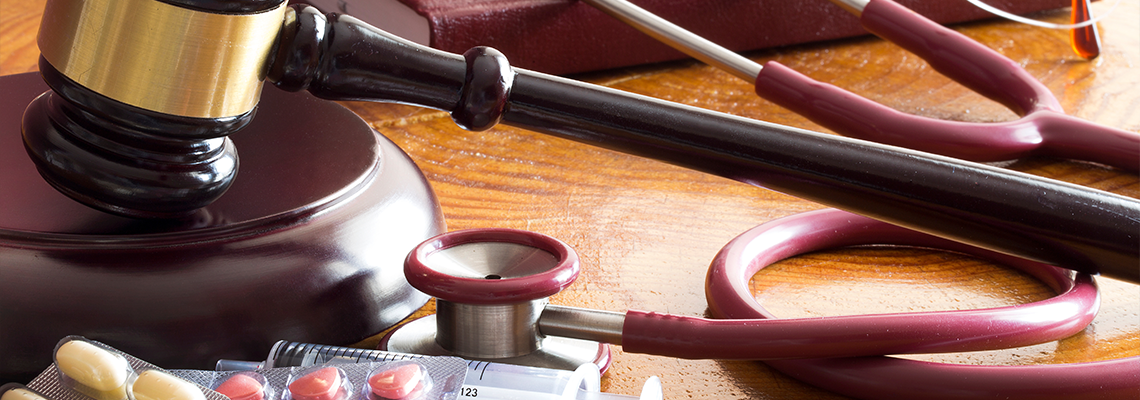
What You Need to Know About Prescription Drug Crimes
Prescription drug crimes can lead to severe penalties and require a high-level understanding to navigate. Whether you're casually researching or seeking information for personal reasons, it's never a bad idea to familiarize yourself with these laws. This article provides an overview of prescription drug crimes, with some focus on the state of Nebraska, where our law firm is based, and serves as a starting point for grasping this concern of the criminal justice system.
The Basics of Prescription Drug Crimes
Prescription drug crimes are criminal offenses that involve the illegal possession, distribution, and use of prescription drugs. These drugs include both controlled substances, such as opioids and stimulants, as well as non-controlled substances like antidepressants and sleep aids.
Types of Prescription Drug Crimes
Here in Nebraska, you can be arrested for having prescription drugs for several reasons. Some common types of prescription drug crimes include:
Prescription forgery: This is the act of altering or falsifying a prescription to obtain more medication than prescribed, or obtaining a prescription without authorization.
Prescription fraud: Similar to forgery, this involves using false information to obtain a prescription or getting multiple prescriptions from different doctors.
Diversion: The illegal distribution of prescription drugs for non-medical purposes.
Possession: Simply having in one's possession a prescription drug without a valid prescription.
Trafficking: Transportation, delivery, or sale of prescription drugs without authorization.
Prescription drug abuse: This refers to the intentional misuse of prescription drugs for recreational purposes.
The Level of Offense a Defendant Can Face
Prescription drug offenses are wobblers, which means they can result in either misdemeanor or felony charges. Depending on the prescription involved and the quantity in possession, individuals could face felony charges. For instance, possessing a large amount of ADHD medication or painkillers could lead to felony charges.
And here's something you might not know: it's considered a misdemeanor offense to possess prescription drugs that are not in the container that the pharmacy gave you. Yes, taking pills out of the bottle and having them in a separate container can still land you with a charge.
DUIs and Prescription Drugs
Driving under the influence of prescription medication can have severe legal consequences. Not many people are aware of this fact, so let's get into it:
Unlike alcohol-related DUI cases, there is no "minimum" level for those driving while impaired on prescription drugs. That's right. Even if you've taken just one Valium, you could potentially be charged with a DUI.
In states where marijuana is legal, there might be a minimum limit for THC in your blood, but don't assume having a prescription card for marijuana will protect you if you're driving under the influence. The best course of action is always to follow the directions from your doctor and avoid driving if you feel impaired. It's always better to be safe than sorry.
Methods of Proving Prescription Drug Use
So how does law enforcement prove prescription drug use in DUI cases? They have several methods. Drug swabs, which test for the presence of certain chemicals in your saliva, are being used at DUI checkpoints.
These swabs can detect the presence of prescription drugs like Xanax. If the swab test is inconclusive, a blood test can be performed. Also, having a pill bottle in your possession or in your car can be used as evidence against you.
Defenses Against Prescription Drug Charges
If you're facing prescription drug charges, it's crucial to seek legal representation from an experienced criminal defense attorney. A knowledgeable lawyer will review your case and build a defense strategy that may include:
Challenging the validity of the search and seizure: If law enforcement didn’t have a valid warrant or reason to conduct a search, any evidence obtained during the search can be deemed inadmissible in court.
Proving a valid prescription: If you have a legitimate prescription for the drug in question, your lawyer can present this as evidence to establish you were not illegally possessing or using the medication.
Arguing against intent: In some cases, people may unknowingly possess or use prescription drugs without realizing they are illegal. A skilled attorney can argue that there was no intent to commit a crime.
If You're Facing Charges, You Need an Attorney.
This is perhaps the most important thing to remember. If you or a loved one ever finds yourself facing a prescription drug charge, don't panic. Seek legal help from an experienced criminal defense attorney who can evaluate your case, provide guidance on the best defense strategy, and protect your rights throughout the process.
Driving under the influence of prescription drugs is a serious offense with severe legal consequences. It's essential to be aware of the potential dangers and understand your rights when facing charges related to prescribed medicine.
Consulting with a knowledgeable drug crime attorney is the best way to navigate the legal system and protect your future. Hug and Jacobs LLC represents clients in and around Omaha, Nebraska, and we're here to help and guide you through these challenging times. Whether you're in Fremont, Lincoln, Papillion, Wahoo, or another nearby community, contact us today to set up a free initial consultation.
